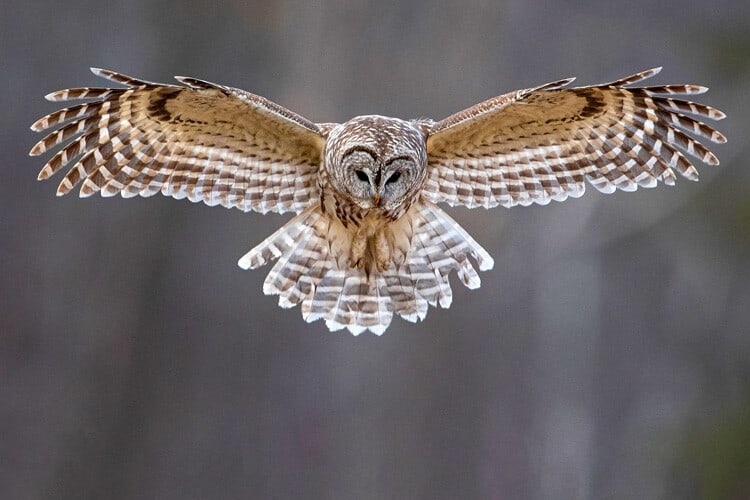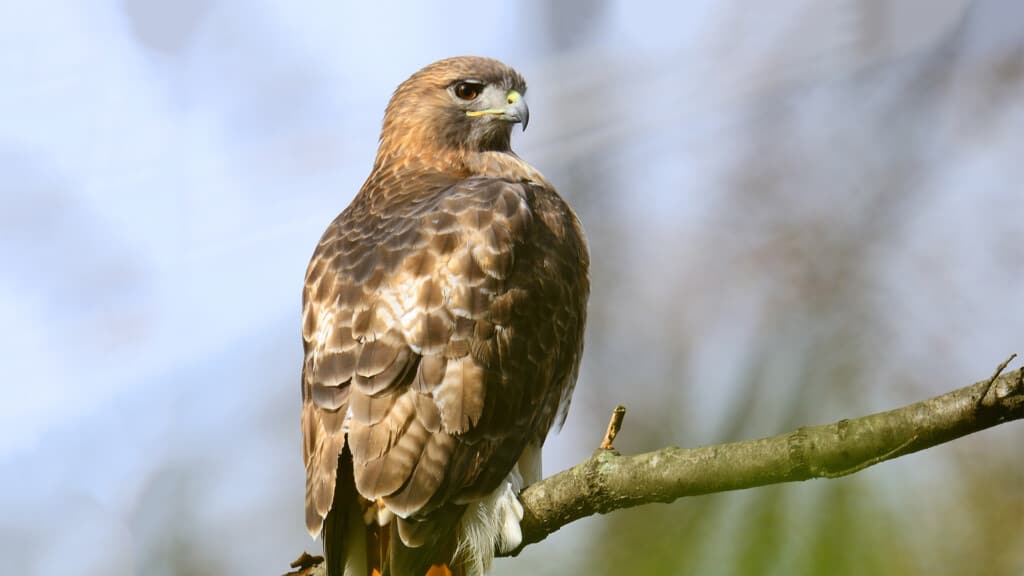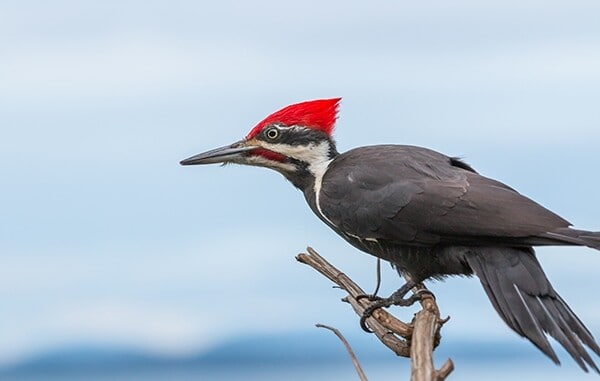One of the biggest challenges of turkey hunting is finding turkeys. That’s where locator calls come in. Turkeys have a reflex which causes them to gobble at loud noises, which we call a shock gobble. We can use this to our advantage to find them! The idea is relatively simple, although the execution can still be difficult. Before we look at each call let’s quickly go over how to use a locator call.
Locator calls work best in the spring when toms are amped up and ready to fight over breeding rights. Because they are so amped up, they will shock gobble at just about anything. So we use loud non-turkey calls to get a reaction out of them. Then we can “locate” them based on the gobble they let out and start to make a move on them.
I will say that you cannot use locator calls over and over again like you can a turkey call. Use them sparingly or else you may scare off a tom. Now that you have a rough idea of what a locator call is and how to use one, Let’s take a look at nine of the most common locator calls, when you should use them, and how likely each of them are to work.
1 | The Most Popular Locator Call: An Owl Call
The owl call is awesome for locating turkeys, especially before they come down off their roost and before they go back to their roost in the evening. You will never hear a crow or many other birds making much noise before the sun comes up or after it goes down, but that is not the case when it comes to owls. If you are just getting into locator calls, the owl call is a defiant go-to, check out an owl call here on Amazon.

If you get a response in the evening, it can help you get a good idea of where you should be hunting the next day so you can catch that gobbler when he comes off his roost in the morning. Plus, you may even get another response from him in the morning to pinpoint his location.
You may not get a response every time you imitate an owl, but if you do it can be a huge advantage to know where a bird is before he gets off roost. Once you get a response in the early morning, put the owl call away and start heading in his direction. Make a solid plan on how to catch him when he comes down, but do not go crazy with the locator calls during the early morning.
2 | Gobblers Will Surely Hear a Loud Goose Call
The goose call is my personal go-to locator call during the day. While the owl call works great in the morning and evening, you do not hear many owls during the day. On the other hand, you will hear tons of geese throughout the day, and the local turkeys hear them more often than you do.
A goose call works really well for two main reasons. First it is a very loud call, so you will reach toms all over the property and can even cause some closer toms to shock gobble. Secondly, the changing frequency and herky jerky nature of the goose call is often enough to get a gobbler to call back.
The land that I hunt every year consists of a large wetland/swamp area and some hilly pine and oak forests. We typically get more ducks than geese in the swamp, but we do get geese every now and then, so we always let out a few goose calls around the end of our duck hunts.
This is mostly for fun since my dad literally sings cucaracha on the goose call… long story short, there have been multiple times that my dad will blow on that super loud goose call and we hear turkeys gobble back at us. So if you happen to not have a goose call, you can pick one up here on Amazon.
3 | A Peacock Call is Sure to Get Their Attention
A peacock call is a sure fire way to get a shock gobble out of a turkey. Many hunters have used the peacock call and many of them report having major success with it. Although it is an odd call that many turkeys do not hear all that often, that does not seem to matter in most populations.

When this loud call really shines is when you cannot get any other locator calls to work. You can think of it as a catch all for locator calls. I have heard of guys getting shock gobbles from a truck door, bigfoot call, and even by throwing rocks against a guard rail, but the peacock call tends to outperform all of those methods. Plus, these calls are very affordable on Amazon.
Since we do not have very many wild peacocks running around in most of the turkey woods, using a peacock call is also sort of a safety precaution on public land. The gobble makes a great locator call, but if you are on public land or a shared private plot, you could have another hunter trying to hunt you if you use the gobble. If you are using a peacock call, they will surely know you are a hunter.
4 | You Probably Have a Duck Call
Although you may not have thought about it, a loud hail call can get toms going. Depending on your property, the turkeys may or may not hear a lot of ducks. If they never get to hear ducks, a startling loud hail call could get a shock gobble out of them.
Plus, you probably already have a duck call that you could quickly throw in your turkey vest, if not you can get one here on Amazon. If you do already have a duck call, what could it hurt to give it a try? There are plenty of hunters that report having success with it, but others struggle to get a response, so it all depends on your local turkey population.
5 | Crows Annoy Turkeys Too
The crow call is probably the most popular locator call behind the owl call. A crow call works great to get a gobble out of a tom during the heat of the day. You never want to use a crow call before the sun comes up, but during the later end of the morning and rolling into lunch, a crow call can work like magic.
The crow call and owl call are really the two basic locator calls that most hunters use. I recommend using the owl call early in the morning and then the crow call during the rest of the day. If you are out all day, you can try the owl call once more before dusk. This duo is sure to get turkeys talking, so if you do not already have a crow call, pick one up here on Amazon.
One tip I have for using the crow locator call is to make it as realistic as possible. You do not want to just blow as hard and as often as you can on the call. Put as much effort into mimicking the local crow population as you would trying to make an awesome duck call.

6 | Get a Shock Gobble With a Hawk Call
Hunters get mixed results with the hawk call. If you try to reason it a little bit, you may say to yourself “shouldn’t the hawk call scare them and keep them quiet?” Well that is what I thought too. It all depends on your turkey population, they will all respond differently to different sounds so there is no way to say for sure if a certain call will or will not work on your property.
Not very many hunters use the hawk call, but there are a few that report having success with it. The only time I would use this would be if I could not get a response from any other call. If they are not already responding, what would it hurt to scare them a little? If you want to try it out, you can get an inexpensive hawk call here off Amazon.
7 | You Are Turkey Hunting After All, Try the Cutting Hen Call
A cutting hen call is an awesome call to get a gobble with. The best time to use this call (as a locator) would be a while after you got a gobble from another locator call. For example, if you got a gobble from an owl call earlier in the morning and you went in that direction and did not want to push the bird, let out a cut for a little more information.
It is never a good idea to repeatedly use non-turkey locator calls. A sharp crow or goose locator call every now and then is fine, but letting one out every 50-100 yards is sure to let a tom know something is up. That’s what makes the cutting hen call beautiful. You can compound it on top of your former locator. So you really are letting out multiple locator calls, but the toms are none the wiser. You can make this call with a common mouth/diaphragm call, which you can get on Amazon fairly cheaply.
After previous success, you can then let out a cutting hen call and possibly get a call back, but be ready. If you get close to him with the intel from a former locator call and then you let out a cutting hen call, he may come running your way. So do not use this call if you are not ready to take out a gobbler.
8 | A Pileated Woodpecker Call Could Peak Their Interest
Pileated woodpeckers make an extremely loud call that will get the attention of everything in the area. Turkeys are of course included on that list, and although I myself have not used a pileated woodpecker call, many hunters online say that this call has worked when nothing else would. If you have been having trouble getting birds to respond, try picking up a pileated woodpecker call here on Amazon.

If you are looking for a good indication if this may work or not, just think if you have seen or heard any pileated woodpeckers on your property before. If you have never seen or heard one on the property you are hunting, it may not work. Although if you have a good population of woodpeckers, this call could be worth a try.
9 | You May Get a Shock Gobble With a Coyote Call
Another less common locator call is a coyote call. I have never had much luck with a coyote call, and many hunters are afraid to use them. However, others have said that they work like a charm.
If I were to use this call it would probably be in the evening, close to roost. It will probably push birds up to their roost, and if they let out a shock gobble you will get a good idea of where to set up the next day. If you are scared that this call will run turkeys off, try the owl call instead. If you want to give it a try, you can check current prices of coyotes calls here on Amazon.
Conclusion
Locator calls are an essential part of any serious turkey hunter’s arsenal. While some hunters have major success with wacky calls like a hawk call, you can never go wrong with the owl and crow (or goose) call combo. Use the owl call early in the morning and late at night, then throughout the day use the crow call to try and squeeze a shock gobble out of a local tom.
No matter what you try out, you can not really go wrong with a locator call. If you are having trouble with your current locator call strategy, try another one on this list. Hopefully it will help you bag a turkey this year and become a better turkey hunter.
